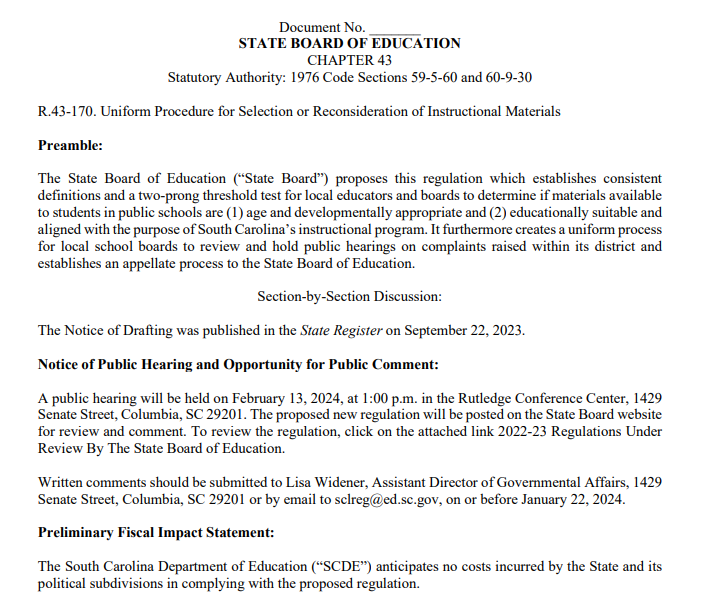Fund Students, Fix Systems

Editor
I. The Framework
Long before the South Carolina Supreme Court issued the Abbeville decision on November 12, 2014, Palmetto Promise Institute was working with a cadre of like-minded education reformers who believe in empowering every student in South Carolina with a high-quality education that is customized to their individual needs. How to achieve this bold goal? Fund Students and Fix Systems.
We are guided in our work by three core principles. First, Autonomy for schools and families. Principals and teachers need the latitude to be entrepreneurial—to innovate to meet the unique needs of their unique student populations. Practically speaking, this means tying dollars to students and pushing decision making-authority out of Columbia and district offices and back into the classroom and the hands of parents.
But, like in business, autonomy will not work without real Accountability. We must have metrics that are reliable and valid——and focused like a laser on student outcomes. This accountability should be transparent and fair, measuring actual student achievement as well as year-to-year gains in learning.
Equally important if not more important is Equity, a concept that goes to the heart of the Abbeville ruling. As the chart on the inside of this report shows, Abbeville is not about increasing financing, but about increasing equity. While the Court did not give a prescription for how to solve the equity problem, it went out of its way to state repeatedly that the answer is not simply more money, citing a “clear disconnect the inputs and outputs” in the plaintiff districts. To close this disparity, the state “funding scheme” and local “institutions” must be reformed, they said, which takes us back to our theme: Fund Students, Fix Systems.
By increasing Autonomy, Accountability and Equity, we will see a systematic rethinking of funding and governance, and that means one thing: expanded Opportunity for every student to reach their full potential. Such a seismic shift will not occur overnight, and the next few years will be challenging, especially for those who fear change or cynically work to maintain the status quo because of their own vested interests. But we must act boldly or bear the guilt of losing another generation of unrealized potential.
Learn More: tinyurl.com/FundStudents
II. The Formula
South Carolina traditional public schools are funded (and to some degree managed) through a combination of general fund revenues, lottery revenues (2002), and funding embedded in the Education Improvement Act of 1984 (EIA), and the Education Accountability Act (1998). But the best innovation in education funding in South Carolina was the enactment of the Education Finance Act (1977). The EFA, through its calculus, funds the foundational educational program for public schools. The wisdom of the EFA is its reliance on a formula that provides the ability to set clear priorities and weight funding equitably, because it takes into account individual district’s “ability to pay” which determines the mix of state and local funds. The EFA should be protected, not undermined by new programs that dilute its efficiency and increase bureaucracy at the state, district or even school level.
Learn More About Public Charter and Virtual School Funding in South Carolina: tinyurl.com/PublicCharters
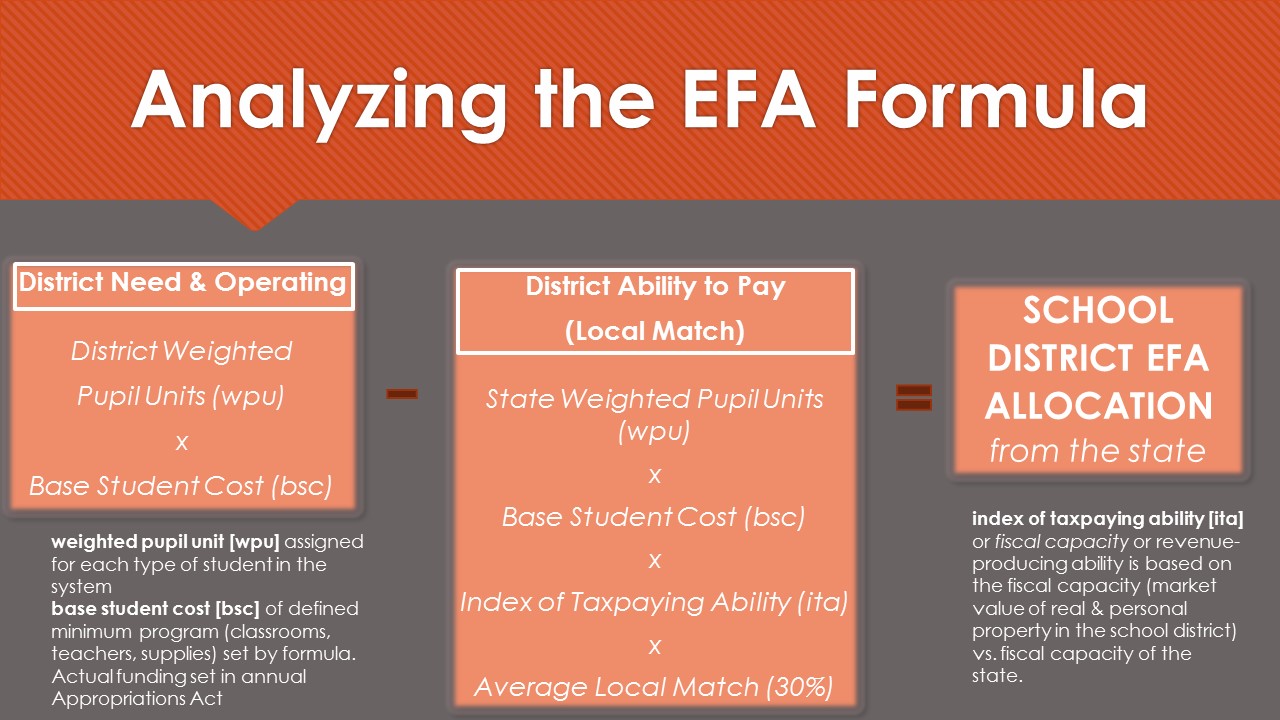
III. The Finances
Is there a revenue problem? This chart shows that total revenue for South Carolina public schools for 2014-2015 was $8.3 billion, up $774 million from 2010-2011 levels.
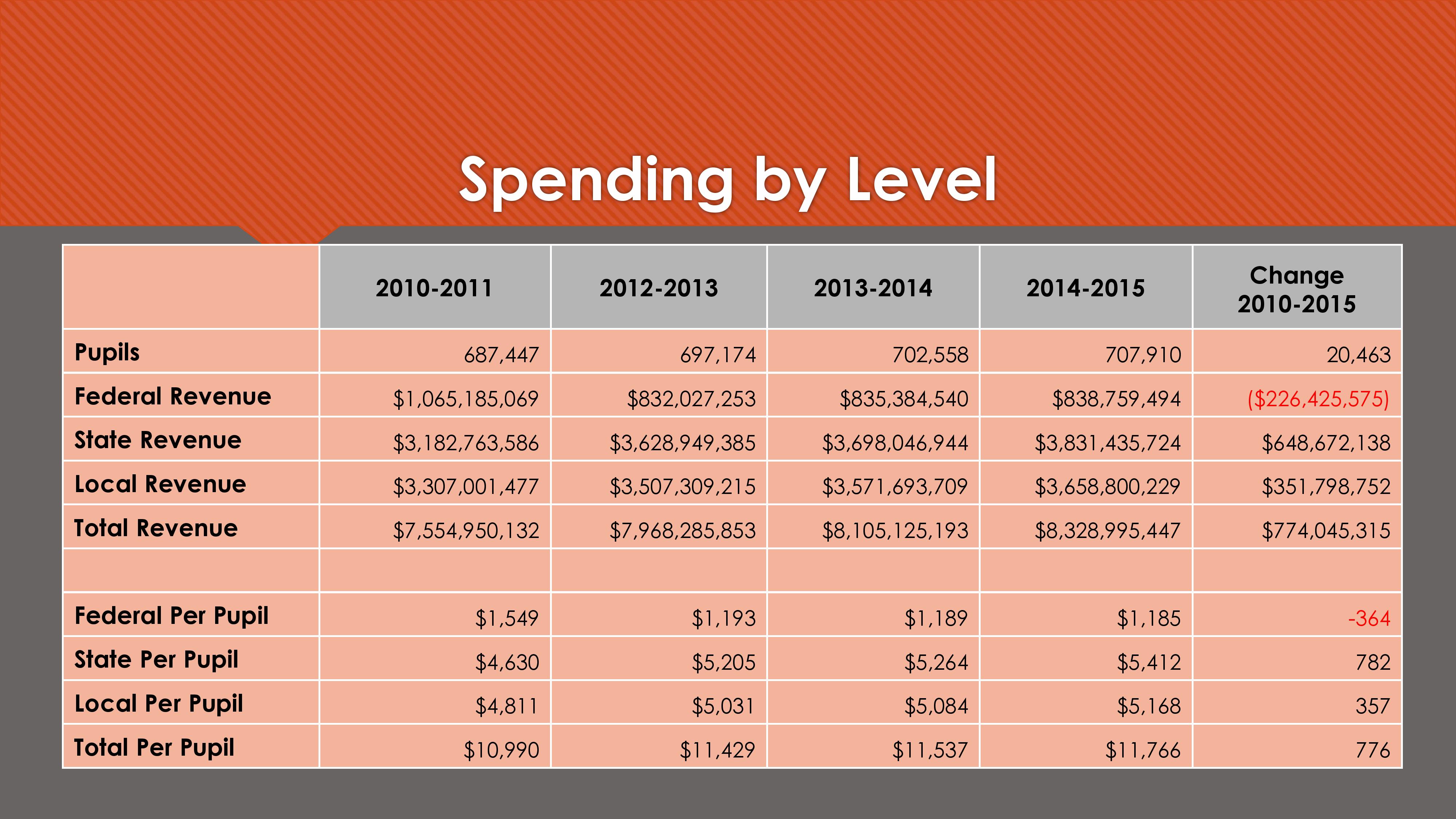
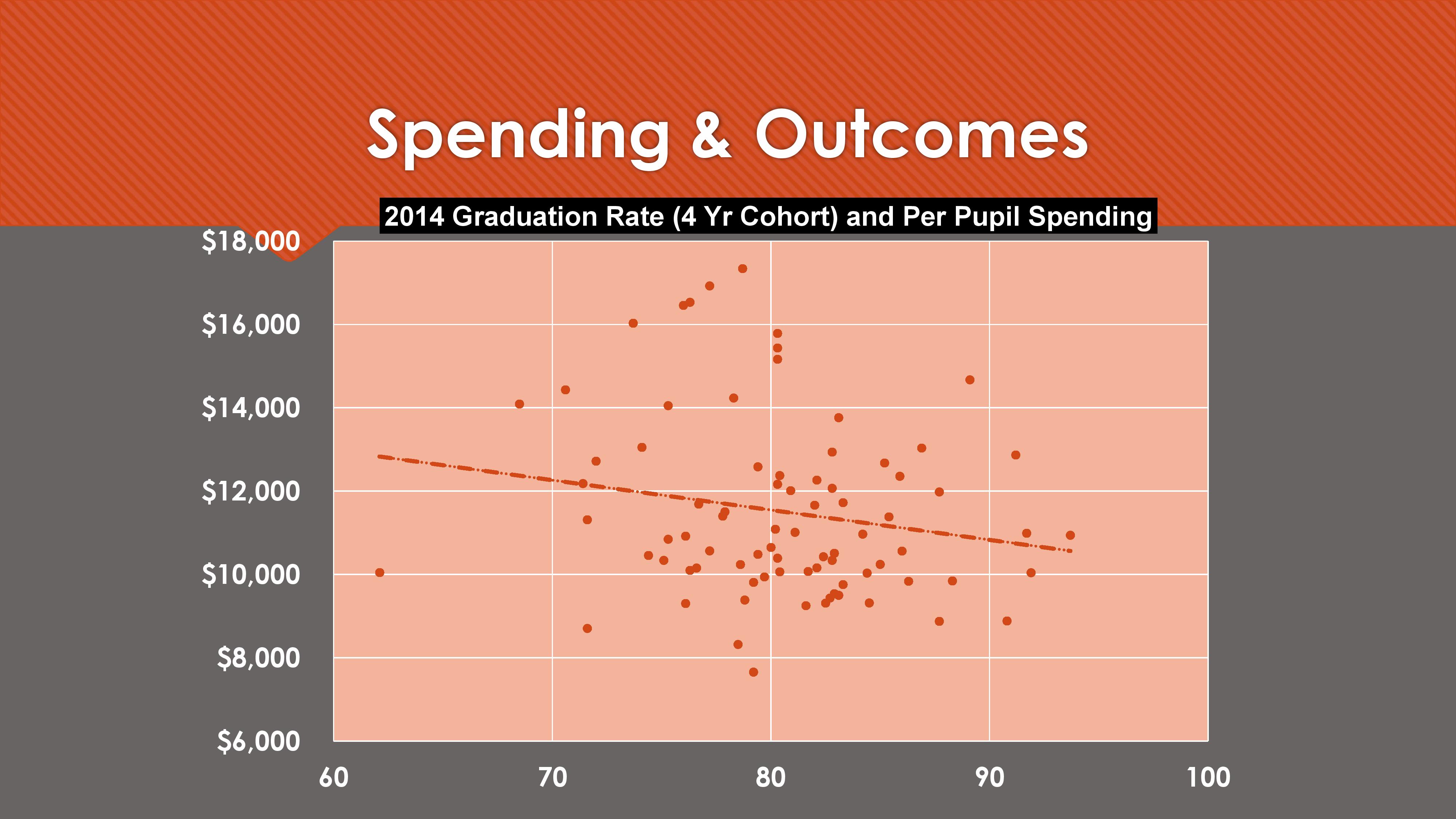
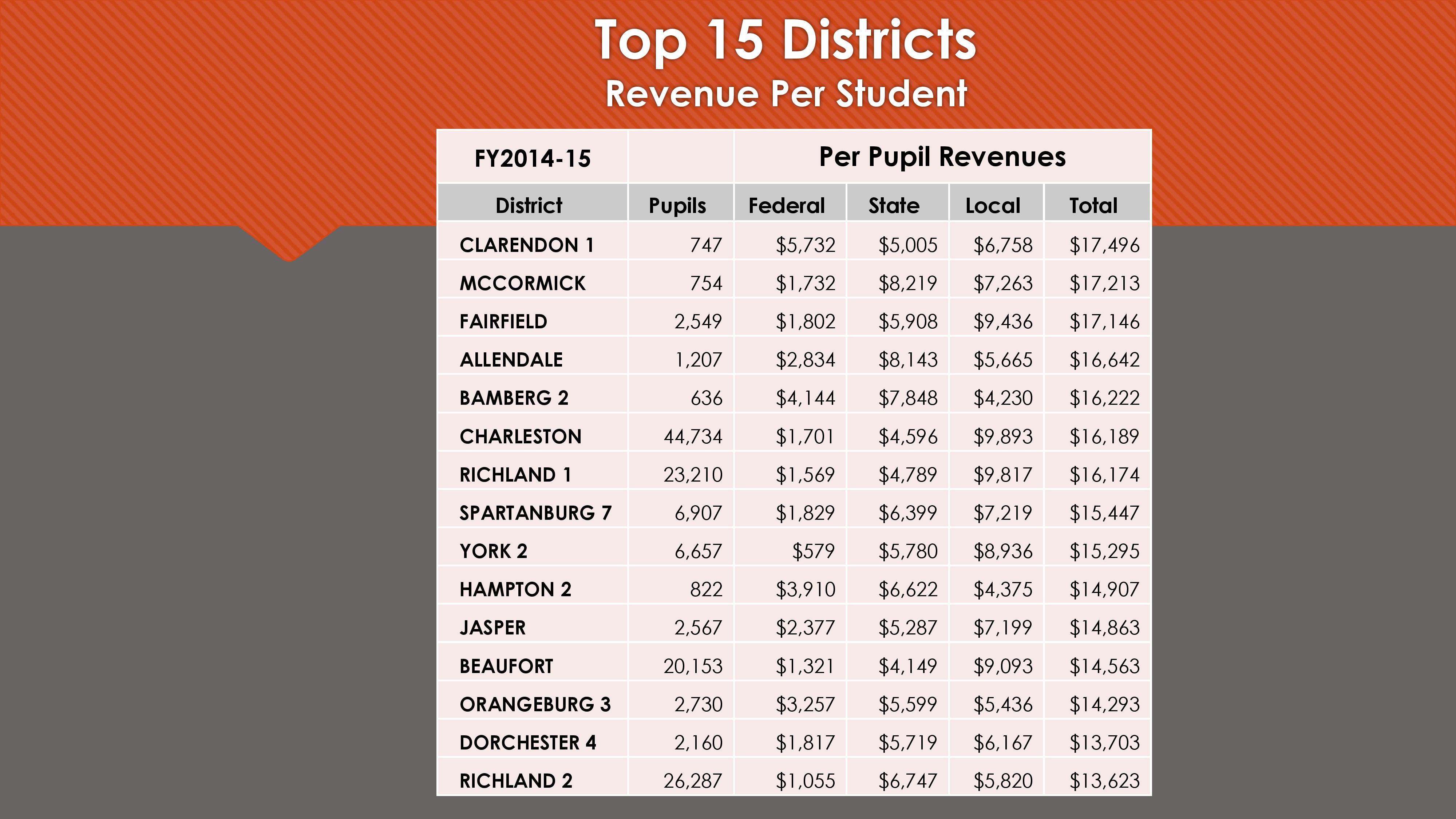
This chart shows the top fifteen best funded school districts in the state on a per pupil basis. Several of these districts are a part of the Abbeville suit. The EFA formula, which takes into account the district’s ability to pay, determines the mix of state-local funds. Due to its wealth (“ability to pay”), Beaufort receives half the state funding of McCormick.
IV. The Future: 4 Key Reforms
Streamlined Funding Formula
South Carolina’s Education Finance Act (EFA) formula provides an effective, equitable mechanism for lawmakers to set clear, accountable priorities. Unfortunately, right now the power of the formula is being weakened by dozens of well-intentioned programs that divert dollars out of classrooms into duplicative administrative overhead and cumbersome compliance requirements. By using EFA’s weighted pupil unit concept, we can give schools more autonomy over the dollars generated by the students they teach by tying funding as closely as possible to the profile of those specific children. The way to do this: evaluate and streamline existing programs and put those dollars into strengthening a clearly prioritized EFA that reflects the challenges and needs of students in each part of our state.
Learn More: tinyurl.com/StreamlineEFA
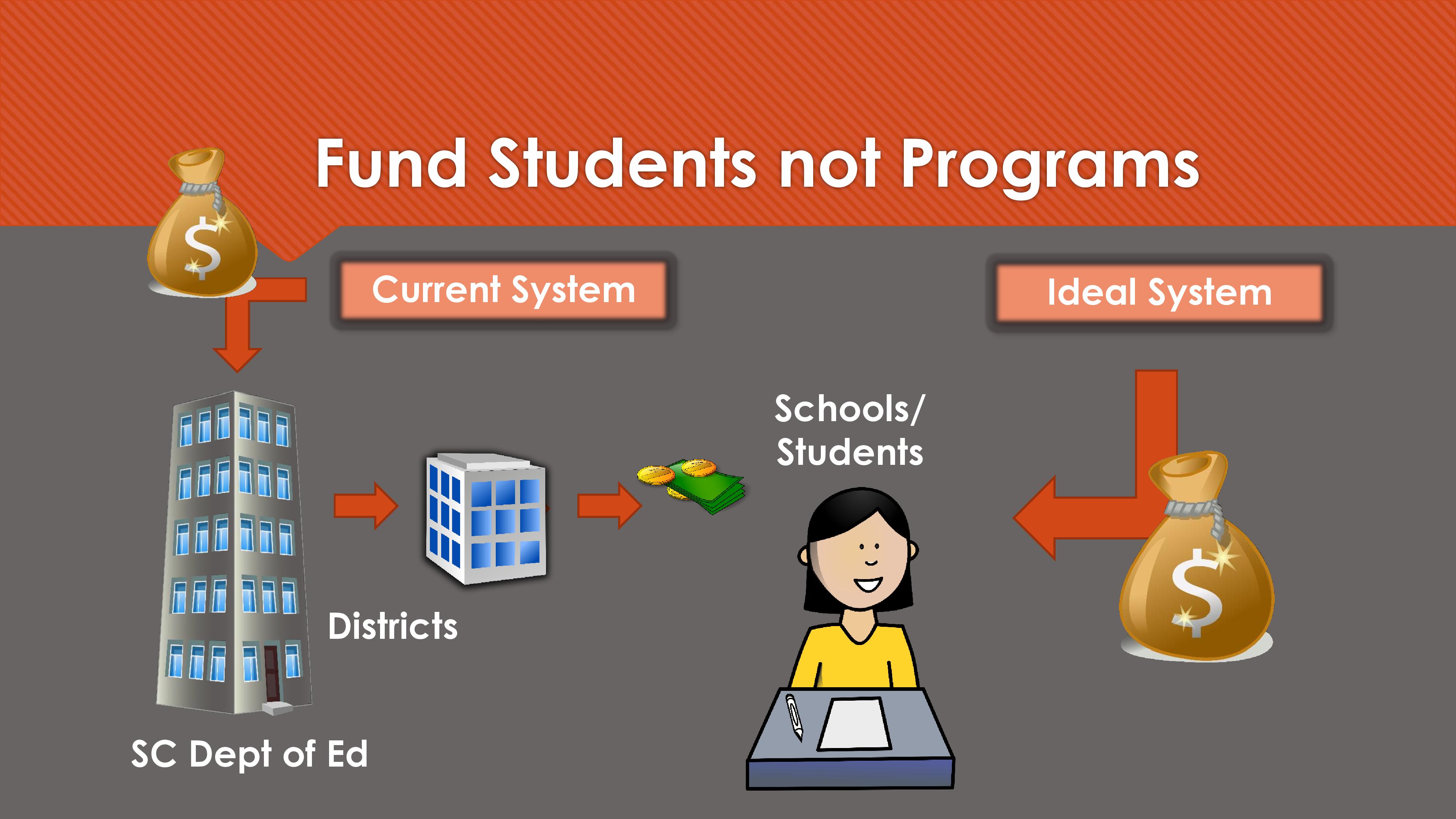
Statewide Achievement School District
Achievement School Districts (ASD’s) are delivering results and showing tremendous progress for students where they are being established in Louisiana, Tennessee and Michigan. Designed to oversee the turnaround of a state’s lowest performing schools, an ASD is created legislatively to define what schools (usually the bottom 5%) will be part of it and then to give the Governor or Superintendent of Education the power to choose a high-caliber, accountable leader. ASD’s free these leaders from bureaucratic red tape and outdated policies and practices often entrenched in low-performing school systems and allow for the autonomy and innovation necessary to create truly transformational school turnaround. South Carolina’s accountability system currently identifies chronically low-performing schools, but these schools too often go without meaningful, lasting interventions. The school takeover provisions South Carolina’s Education Accountability Act need the reinforcement and laser-like focus of a statewide Achievement School District.
Learn More: tinyurl.com/AchievementSchoolDistrict
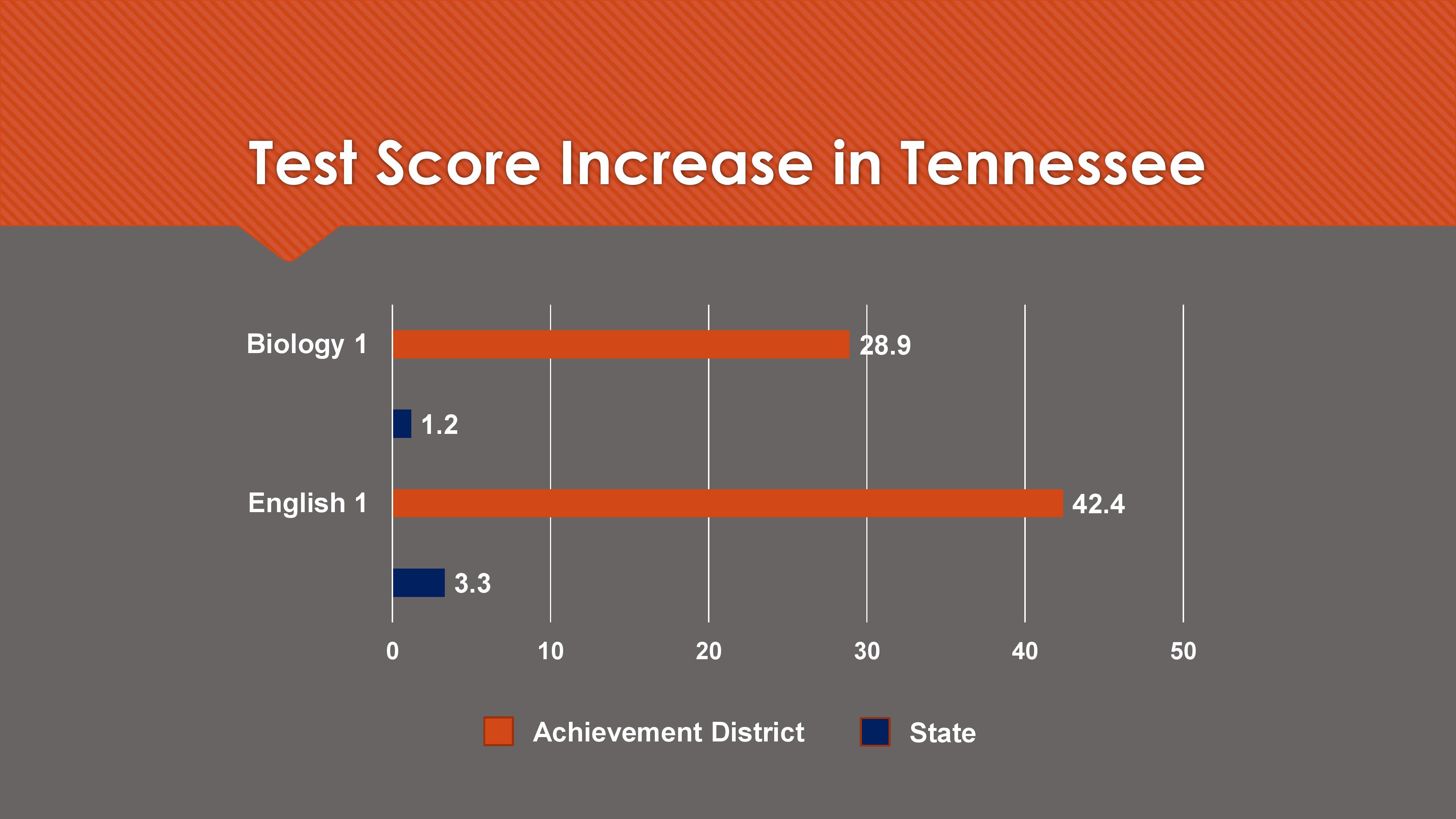
Education Savings Accounts
Piloted in Arizona, Education Savings Accounts represent the ultimate in personalized education, by giving parents access to 90% of their child’s funding from the school funding formula. The state deposits the money into a dedicated personal account and parents may then select from a list of qualified services to create an education that matches the individual needs of their child. In Arizona, qualified students include those attending “D or F” rated schools, students with a disability that has been diagnosed or recognized by the public school system, adopted or foster care students who were previously a ward of a state court, students who have siblings that currently receive an ESA, students who are from families with an active duty member of the Armed Forces can use their ESA account for a wide range of educational expenses including tuition, therapy and tutoring.
Learn More: tinyurl.com/EducationSavingsAccount

Online Course Access
Often students – especially those who attend rural or economically depressed areas – lack access to advanced science and math classes, college prep courses, foreign language classes, career technical classes in high-demand job sectors, and other specialized subjects taught by expert teachers. According to the Foundation for Excellence in Education: Course Access provides public school students with these course offerings from diverse, accountable providers, both public and private. Students select from a broad range of courses, in various formats—including online, face-to-face, or blended. In order to place a strong focus on student outcomes, course providers only receive full funding upon a student’s successful completion of a state-approved Course Access course. In 2006, Minnesota was the first state to pass Course Access legislation. Since, then states from Utah to Florida and Michigan to Texas have created similar programs. Today, 10 states have authorized Course Access programs. In 2013-2014, more than 2,700 students in Louisiana’s Course Access program took courses ranging from Advanced Placement French to ACT Prep to vocational classes. Course Access opens up hundreds of sources of new classes for students while simplifying the search and enrollment by creating a statewide, dynamic online catalog with information about providers and courses.
Learn More: tinyurl.com/SCDigitalLearning






